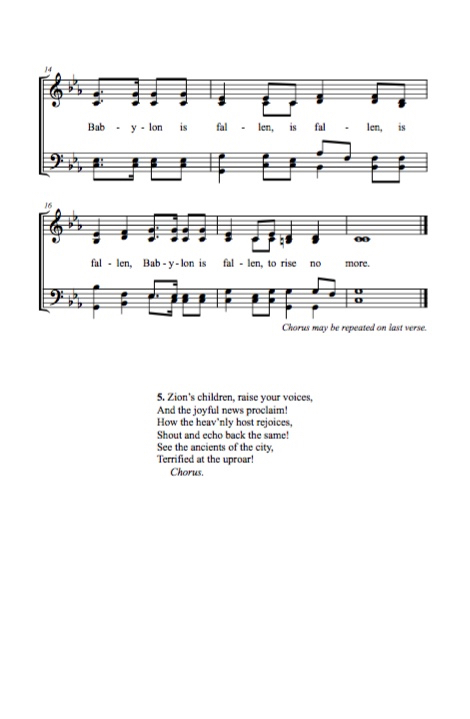I’ve been reading apocalypses recently: Revelation, an ancient Christian apocalypse, and Joel, an ancient Hebrew apocalypse, to be specific. As a Transcendentalist, I have a soft spot in my heart for Joel’s insistence that everyone is going to have transcendent visions: “And it shall come to pass afterward, that I will pour out my spirit upon all flesh; and your sons and your daughters shall prophesy, your old men shall dream dreams, your young men shall see visions: And also upon the servants and upon the handmaids in those days will I pour out my spirit.” (Joel 2.28-29)
Politically, however, I’m more interested in Revelation, which rails against the oppression of the Romans, and longs for the destruction of the Roman Empire. It’s the vivid expression of an oppressed people’s longing for the destruction of their foreign oppressors, filled with extravagant imagery. I know conventional Christians see Revelation as the coming of the End Times when they all will get raptured up to heaven; but to me it reads more like political hate mail for the Roman overlords.
To better understand Revelation, I’ve been reading bits of a non-canonical apocalyptic book, the Sibylline Oracles, written somewhere around the same time as Revelation, give or take a century or two. This passage from Book VIII makes the political content quite clear:
God’s declarations of great wrath to come
In the last age upon the faithless world
I make known, prophesying to all men
According to their cities. From the time
When the great tower fell and the tongues of men
Were parted into many languages
Of mortals, first was Egypt’s royal power
Established, that of Persians and of Medes
And also of the Ethiopians
And of Assyria and Babylon,
Then the great pride of boasting Macedon,
Then, fifth, the famous lawless kingdom last
Of the Italians shall show many evils
Unto all mortals and shall spend the toils
Of men of every land….
There shall come to thee sometime from above
A heavenly stroke deserved, O haughty Rome.
And thou shalt be the first to bend thy neck
And be razed to the ground, and thee shall fire
Destructive utterly consume, cast down
Upon thy pavements, and thy wealth shall perish,
And wolves and foxes dwell in thy foundations.
And then shalt thou be wholly desolate,
As if not born….
The Sibylline Oracles, trans. Milton S. Terry, 1899, Book VIII, ll. 1-15, 47-55; pp. 161-163.
Nothing about the Rapture here, just straightforward hate mail for Rome. In my reading, Revelation is also hate mail for Rome; it makes more sense that way. Yes, it is a lot less straightforward than the above passage from the Sibylline Oracles; yes, it is filled with bizarre imagery; but it makes a lot more sense as an ancient religio-political tract predicting the downfall of Rome than as a onto-theological text predicting — um, from a theological point of view, I’m not sure exactly what Revelation is supposed to predict.


